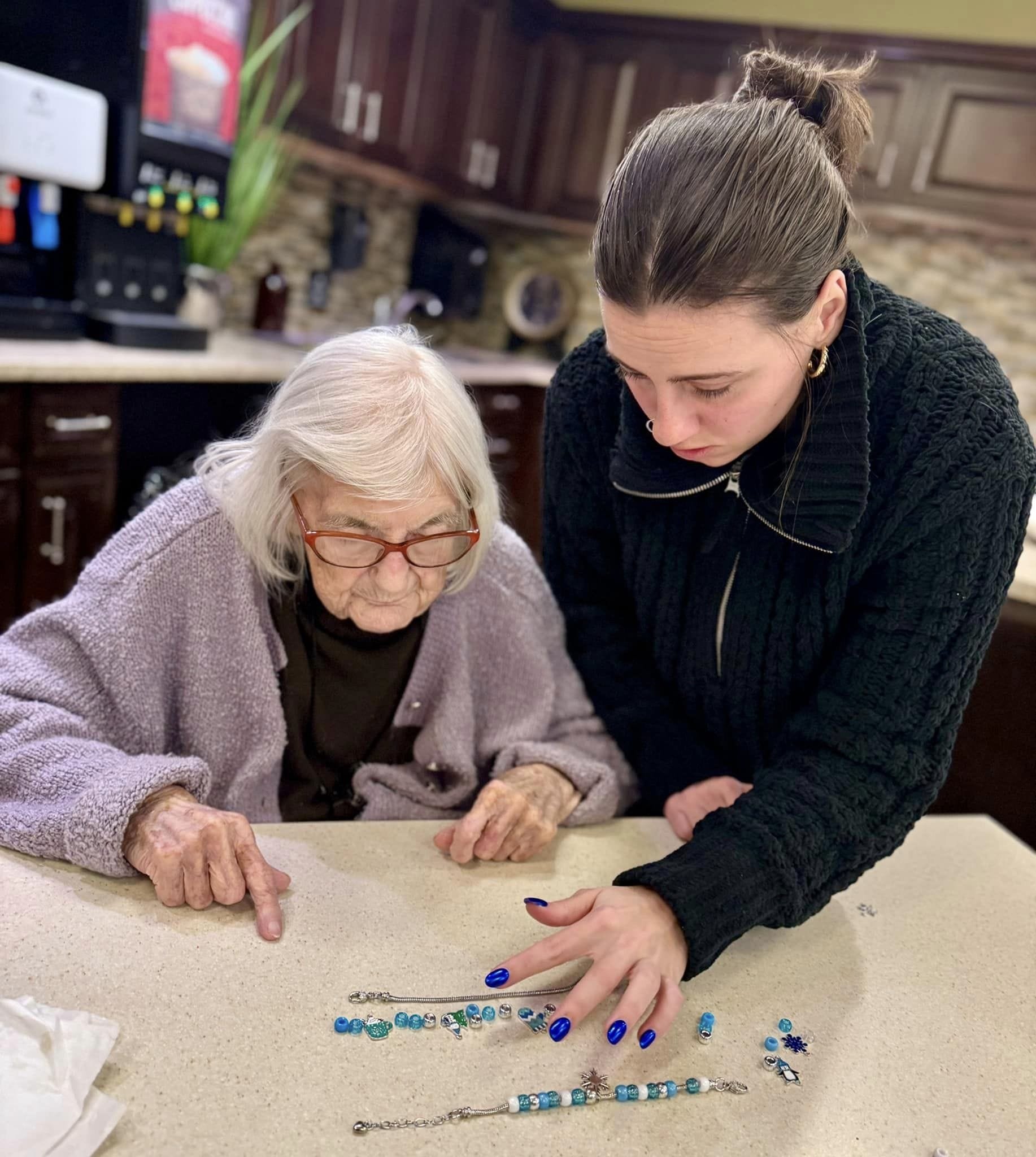High-Quality Care Program Provided With Alzheimers Care Charlotte Centers
High-Quality Care Program Provided With Alzheimers Care Charlotte Centers
Blog Article
Producing a Safe and Helpful Environment for Alzheimer's Treatment
The creation of a encouraging and risk-free atmosphere for individuals with Alzheimer's is extremely important in improving their quality of life. This entails not just physical adaptations within the home, such as decreasing dangers and incorporating acquainted aspects, but likewise the implementation of structured regimens and meaningful activities that accommodate their cognitive needs. Additionally, understanding the psychological and emotional measurements of care can significantly impact their complacency and link. Checking out these complex strategies can reveal important understandings into reliable caregiving methods that might change the daily experiences of both caretakers and clients.
Recognizing Alzheimer's Requirements
Often, individuals with Alzheimer's disease exhibit a variety of demands that need tailored techniques to care. As the condition advances, cognitive decrease shows up in various means, impacting memory, reasoning, and also the capacity to perform day-to-day tasks. Caretakers have to identify these developing needs to supply proper assistance and ensure a better of life for those affected.
One important aspect of recognizing Alzheimer's requirements is recognizing the significance of routine and familiarity. People often find convenience in well established patterns, which can lower anxiety and confusion. Caretakers must aim to create structured day-to-day schedules that include purposeful activities aligned with the person's capabilities and rate of interests.
Additionally, reliable communication is paramount. Individuals with Alzheimer's may struggle to share themselves or comprehend intricate language. Caregivers ought to utilize straightforward, clear language, usage non-verbal signs, and practice energetic paying attention to foster understanding and connection.
Caretakers ought to urge interaction in area activities or family members celebrations, advertising a sense of belonging and function. Comprehending these varied demands is necessary for creating a supportive care setting.
Creating a Safe Home
Developing a secure home for people with Alzheimer's condition is essential to advertising and decreasing risks independence. The style of the space should focus on safety and security while permitting personal convenience. Remove potential threats such as loosened carpets, sharp objects, and mess, which can lead to drops or mishaps. Ensure that paths are clear and well-lit, as proper lighting decreases disorientation and enhances flexibility.
Integrating adaptive attributes is likewise essential. Mount grab bars in restrooms and near staircases, and consider making use of non-slip mats in damp areas. In addition, utilizing different shades for floors and wall surfaces can assist in identifying rooms, helping to reduce complication.
Experience is necessary for people with Alzheimer's. Individualizing the setting with acquainted items and photos can reinforce a feeling of belonging and protection - Alzheimers Care Charlotte. It is likewise helpful to have a designated area for daily activities, such as analysis or crafting, which can give structure to their day
Last but not least, executing a safe outdoor area permits safe exploration while getting in touch with nature. By attentively developing the home setting, caretakers can significantly improve the lifestyle for people coping with Alzheimer's disease.
Enhancing Communication Abilities

Non-verbal interaction, including facial expressions, gestures, and touch, plays a crucial function in communicating empathy and understanding. Keeping eye contact and a calm demeanor can boost the comfort level of the person, promoting a feeling of safety and security.
Additionally, it is essential to practice energetic listening. This includes being fully present, showing perseverance, and enabling the individual to reveal themselves without interruption. Rep may be required; caregivers should be prepared to take another look at questions or subjects, as individuals with Alzheimer's might have problem with memory recall.
In addition, utilizing aesthetic help or hints, such as photographs or acquainted objects, can assist in recognition and interaction. Ultimately, boosting communication abilities is about developing trust and producing an environment where people really feel heard, valued, and comprehended, thereby enhancing their top quality of life.
Motivating Social Communication
Fostering significant social communications can considerably boost the wellness of people with Alzheimer's condition. Engaging with others not only assists fight feelings of seclusion yet also promotes cognitive feature and psychological health. Structured social tasks, such as team games, crafts and arts, or songs therapy, create chances for homeowners to get in touch with peers and caregivers, which can result in improved state of mind and reduced anxiety.
Producing a welcoming setting that motivates socializing is vital. This can be accomplished by preparing public rooms that facilitate interaction, such as comfortable seating areas or activity spaces. Furthermore, integrating culturally pertinent and acquainted tasks can motivate and stimulate memories engagement, permitting people with Alzheimer's to really feel more connected to their past experiences.
In addition, caregivers should be educated to acknowledge and promote social involvement amongst residents. By prioritizing social interaction, we can significantly enhance the lives of those living with Alzheimer's, cultivating a feeling of neighborhood and belonging.
Sustaining Caretaker Health

To support caregivers, companies ought to use normal training and educational resources to improve their understanding of Alzheimer's condition and caregiving methods. Providing access to break treatment solutions permits caretakers to take necessary breaks, reducing anxiety and exhaustion - Alzheimers Care Charlotte. In addition, cultivating a community through support teams can help with emotional sharing and the exchange of useful suggestions amongst caretakers, developing a network of shared support
Psychological health and wellness sources, such as therapy services, can likewise be important in addressing the psychological toll caregiving can take. By focusing on caretaker health, we produce an Check This Out even more sustainable caregiving atmosphere that not just benefits the caregivers themselves but also boosts the total quality of treatment received by people with Alzheimer's. Inevitably, supporting caregivers is a necessary element in promoting a caring and efficient treatment setting.
Final Thought
Finally, the development of a encouraging and risk-free environment for people with Alzheimer's is important to improving their high quality of life. By prioritizing safety and security with thoughtful design, cultivating psychological well-being with acquainted aspects, and promoting involvement with structured regimens, caretakers can significantly affect the general experience of those affected by this problem. Additionally, supporting caregiver well-being is critical, as it eventually adds to an extra effective and thoughtful care atmosphere.
Repetition might be needed; caretakers ought to be prepared to take another look at questions or topics, as people with Alzheimer's might have a hard time with memory recall.

Report this page